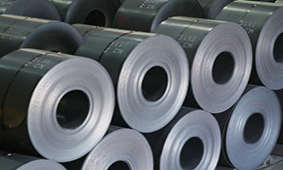
Viewpoint: European HRC pricing mechanism failing

This approach made sense when raw materials were priced annually, and at a fraction of their current cost. But since iron ore and coking coal have moved away from annual benchmark talks to shorter-term contracts — monthly and spot, in the case of iron ore — there is much less sense in using a monthly steel index. Raw materials volatility reverberates throughout the supply chain, and a steel index that publishes just once a month will often lag the real market, whether it is rising or falling.
To put this in context, the February month-to-date average of the daily Argus northwest Europe hot-rolled coil index is €476.25/t, with three days left. The most referenced monthly physical index was €465/t for February. As of today then, mills selling on the basis of that index are losing €11.25 on every tonne.
It is a similar situation in Italy, where indexation is more prevalent. The month-to-date average of the daily Argus domestic Italian index is €443.25/t, while the most used monthly physical index was €435/t for February. As such, mills selling on that basis are losing €8.25 on every tonne they sell. Mills are literally throwing money away.
Of course, this is good for the buy-side, but they will end up paying more than the real market in a downtrend.
Ironically, it is mills that have helped enshrine the dominance of the current pricing mechanism in previous years, and many buyers are reluctant to move away from it as they understandably want to buy on the same basis as their competitors.
Buying or selling against an index that publishes just once a month also makes it difficult to forecast revenue going forward and to mark a stock position against the market.
A daily index provides more clarity over the likely monthly average a few weeks in, and it is easier to track its performance relative to the marketplace. Sales and purchases against the monthly average of a daily index are also much easier to hedge, as most risk management tools typically settle against daily, if not weekly, indices.
The Chicago Mercantile Exchange recently announced it will launch a north European hot-rolled coil futures contract next month, with the London Metal Exchange also likely to launch one later this year.
By Colin Richardson


Trump weighs using $2 billion in CHIPS Act funding for critical minerals

Codelco cuts 2025 copper forecast after El Teniente mine collapse

Electra converts debt, launches $30M raise to jumpstart stalled cobalt refinery

Barrick’s Reko Diq in line for $410M ADB backing

Abcourt readies Sleeping Giant mill to pour first gold since 2014

Nevada army depot to serve as base for first US strategic minerals stockpile

SQM boosts lithium supply plans as prices flick higher

Viridis unveils 200Mt initial reserve for Brazil rare earth project

Tailings could meet much of US critical mineral demand – study

Kyrgyzstan kicks off underground gold mining at Kumtor

Kyrgyzstan kicks off underground gold mining at Kumtor

KoBold Metals granted lithium exploration rights in Congo

Freeport Indonesia to wrap up Gresik plant repairs by early September

Energy Fuels soars on Vulcan Elements partnership

Northern Dynasty sticks to proposal in battle to lift Pebble mine veto

Giustra-backed mining firm teams up with informal miners in Colombia

Critical Metals signs agreement to supply rare earth to US government-funded facility

China extends rare earth controls to imported material

Galan Lithium proceeds with $13M financing for Argentina project

Kyrgyzstan kicks off underground gold mining at Kumtor

Freeport Indonesia to wrap up Gresik plant repairs by early September

Energy Fuels soars on Vulcan Elements partnership

Northern Dynasty sticks to proposal in battle to lift Pebble mine veto

Giustra-backed mining firm teams up with informal miners in Colombia

Critical Metals signs agreement to supply rare earth to US government-funded facility

China extends rare earth controls to imported material

Galan Lithium proceeds with $13M financing for Argentina project

Silver price touches $39 as market weighs rate cut outlook

















